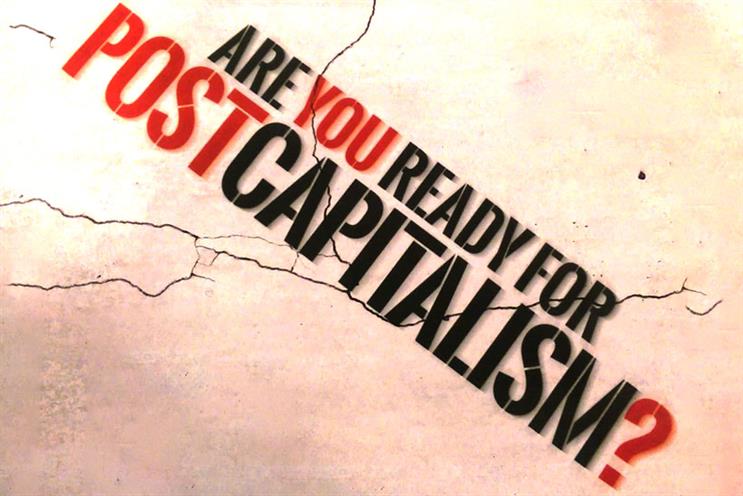
Rachel Barnes is editor of Marketing.
Postcapitalism is not an obvious topic for Marketing, but it shouldn't be viewed as a dirty word. The thinking goes that we are moving from an era of scarcity of physical goods to one of an abundance of information goods.
- and, if he's right (many economists disagree, by the way), it demands a massive shift from business. People prioritising access over ownership, ultra-convenience and circular sustainability would all need to shift from early-adopter territory to mainstream. In Mason's vision, the key moment comes when things are produced ultra-cheap or free, with a goal to reduce the amount of necessary work.
Like it or not, postcapitalism is on the agenda, with even seemingly incongruous brands like HSBC saying it's a discussion that comes up frequently.
So, what does this mean for you, marketers creating valuable brands that command premiums and consumer loyalty? In my view, this is no end-is-nigh scenario.
The Internet of Things will make the physical world every bit as easy to search, use and engage with as the virtual world
Platform capitalism
As Microsoft's outgoing CMO Philippa Snare says, this is a pivotal time where marketers have responsibility to lead the businesses of the future and become the most valuable public servants in a new world. "We can build organisations that reinvent how to make the economy thrive; helping people do great stuff and get the most out of life."
Yet painting a utopian picture of borrowing from our global 'neighbours' in a new, digitally democratic world is not quite the reality either
Idealism and need
The sharing economy may be a key facet of a postcapitalist future, but it is also rooted in our past. Helen Edwards explains how the 19th century's Building Society and Co-operative movements were about pooling resources and self-help, born from a "combination of idealism and need, filling a void that capitalism had left gaping".
From Santander's Kitti app, a platform to save for a shared purpose, to BMW's on-demand rental service, DriveNow, brands are finding their way - and their places - in this sharing economy. BMW marketer Paul Ferraiolo believes the days of brands being solely product manufacturers or retailers is over, and therefore every brand should consider what it must do to transform itself into a service provider.
, which, according to IBM, will make the physical world every bit as easy to search, use and engage with as the virtual world, "squeezing greater productivity and profitability out of industries than anyone ever imagined possible".
Whatever your view on whether we are entering an information-abundant postcapitalist era, there remain fundamental truths that demand a shift from business for upcoming generations. Even if you don't believe in the theory, there are clear forces at work that mean change is inevitable. The question is, which brands will play a part.


